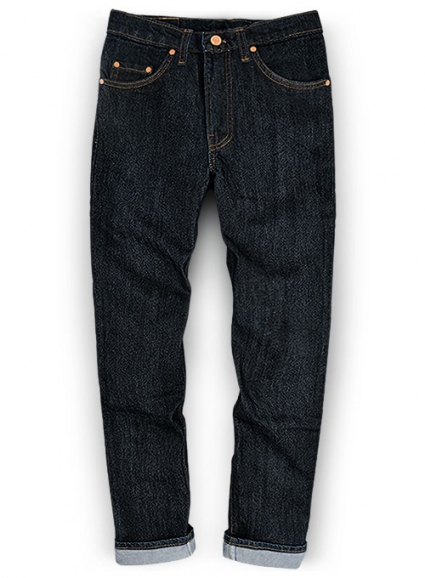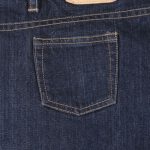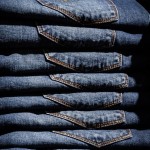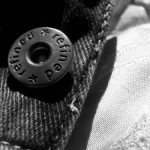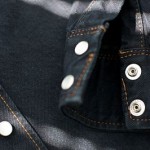When shopping for new jeans, you’ll probably come across the term “hard washed.” Whether you’re looking to buy a pair of traditional jeans or a pair of modern jeans in a bold color, you’ll likely discover that many are labeled as “hard washed.” Based on the name alone, though, it’s difficult to surmise exactly what hard-washed jeans are, let alone how they differ from traditional jeans. In this post, we’re going to reveal the meaning of hard-washed jeans. With this information, you’ll be able to make the right decision when purchasing a new pair of jeans.
Overview of Hard-Washed Jeans
Upon seeing the label “hard washed” on a pair of jeans for the first time, you may assume that indicates a physically harder and more rigid texture, but that’s not the case. Hard-washed jeans are jeans that have been processed in hot water during production.
More specifically, the denim material used in the construction of hard-washed jeans is processed in hot water during production. All jeans are made of denim. Hard-washed jeans are distinguished from their counterparts by featuring a construction of washed denim. When the denim is being made, it’s placed in a bath of hot water, which may or may not contain additives. Regardless, the hot water causes the denim to contract as well as experience other changes. When finished, the newly washed denim is then used in the construction of jeans.
Hard-Washed vs Soft-Washed Jeans
Conversely, there are soft-washed jeans. Soft-washed jeans are also made of washed denim. The difference is that soft-washed jeans are processed at a lower temperature, whereas hard-washed jeans are processed at a higher temperature.
The temperature of the water in which denim is washed directly affects the denim’s physical properties as well as appearance. While soft-washed and hard-washed jeans are both made of water-washed denim, they have different characteristics because of the nuances in water temperature. As previously mentioned, soft-washed jeans are processed in cool or room-temperature water, while hard-washed jeans are processed in hot water.
Benefits of Hard-Washed Jeans
Why should you choose hard-washed jeans over other types of jeans? For starters, they have an incredibly soft texture, making them comfortable to wear for long periods. Most materials become softer when washed in hot water — and denim is no exception. After being submerged in hot water and then drying, denim develops a softer texture.
If your current jeans scratch or irritate your skin, hard-washed jeans might be the answer. Since they processed in hot water, they have a softer texture than other types of jeans. As a result, you can wear them for long periods without worrying about irritation. The soft texture of hard-washed jeans makes them comfortable to wear for days at a time. That’s just one of several reasons, however, to include hard-washed jeans in your daily outfits.
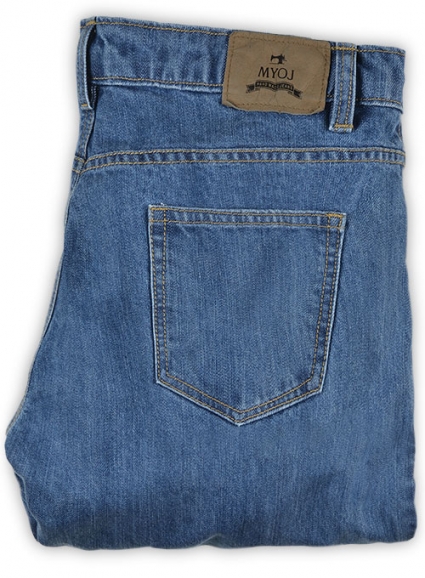
Another benefit of hard-washed jeans is that they are protected against fading. Garments typically fade over time Regardless of the type garment, as well as its color, some of the dye will gradually leak out of the material from which it’s made. As this occurs, the garment will develop a lighter and more faded appearance.
Jeans aren’t immune to fading, but hard-washed jeans offer a superior level of protection against this natural phenomenon than all other types of jeans. Normally, fading is the result of one of two things: exposure to hot water or exposure to ultraviolet (UV) sunlight. Being that hard-washed jeans are processed in hot water during production, you may assume that they are more vulnerable to fading than other types of jeans, but this isn’t true.
Hard-washed jeans are actually better protected against fading than soft-washed and other types of jeans. Since they are intentionally exposed to hot water during production, manufacturers make use a larger amount of dye to accommodate for the fading. Hot-washed jeans will still lose some of their dye when washed in hot water, but since they contain more dye, fading is minimal. Long story short, hard-washed jeans preserve their color better than other types of jeans.
How to Choose Hard-Washed Jeans
If you’re looking to buy a pair of hard-washed jeans, you should check to ensure they are made of 100% hard-washed denim. Pure denim is basically cotton with a particular weaving pattern. Cotton, in turn, changes its physical properties when exposed to hot water. If a pair of hard-washed jeans isn’t made of pure denim, they may not exhibit the same attractive properties as true hard-washed denim jeans.
Don’t forget to consider the color when choosing hard-washed jeans. Hard-washed jeans are available in a range of traditional, as well as modern, colors. Many people prefer hard-washed jeans in a traditional color like light blue or indigo. You can’t go wrong with traditional colors like these because they are universal. In other words, they match most other colors.
Of course, you can always choose hard-washed jeans in a more modern color. Modern colors typically aren’t universal, but they offer a bolder and more eye-catching appearance. Red, for instance, is a modern color that’s guaranteed to turn heads. With a pair of red hard-washed jeans, you’ll project a bolder appearance. Other bold and non-traditional jeans to consider when choosing hard-washed jeans include black, white, yellow, olive and tangerine. Just remember to choose hard-washed jeans in a color that corresponds with your personal style.
What About Dry Denim Jeans?
As you can see, hard-washed jeans offer a variety of benefits, some of which include a soft texture, protection against fading and protection against shrinkage. With that said, you may want to purchase dry denim jeans.
Dry denim jeans are distinguished from soft-washed and hard-washed jeans by eliminating the washing step. Soft-washed jeans are exposed to cool or room-temperature water, whereas hard-washed jeans are exposed to hot water. Dry denim jeans, however, are made of dry denim that isn’t washed or otherwise submerged in water.

